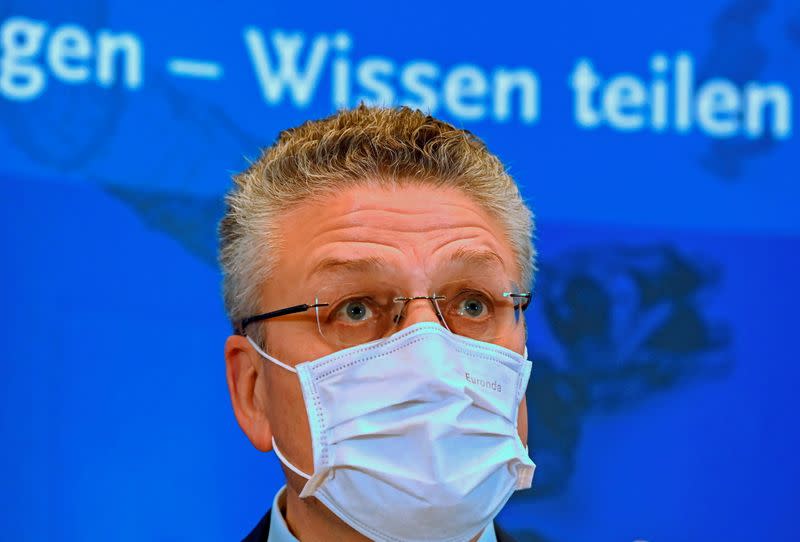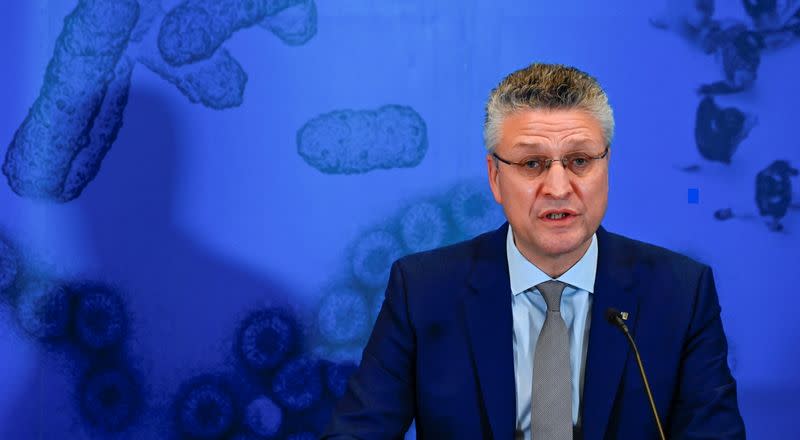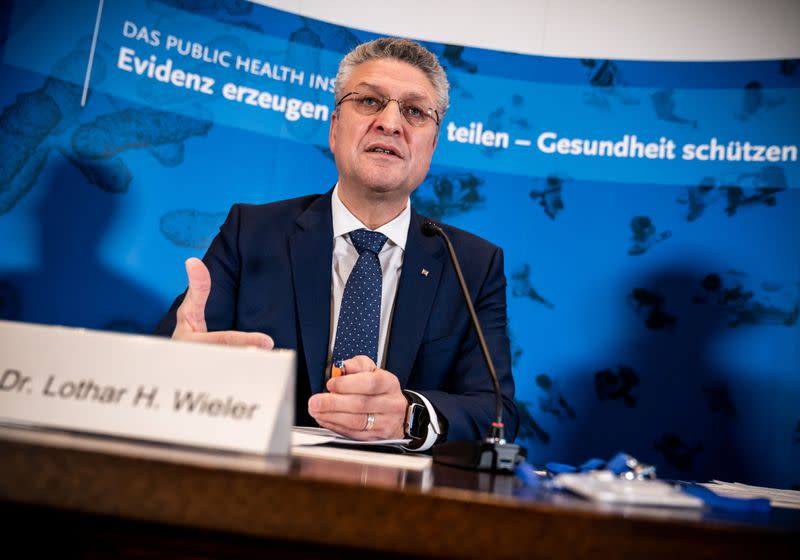Berlin seeks tighter lockdown to rein in pandemic
BERLIN (Reuters) - Berlin wants to close shops and extend the school Christmas holidays to try to get the coronavirus pandemic under control, the mayor of the German capital said on Thursday as the country reported a new record number of cases of COVID-19.
Berlin's mayor Michael Mueller said he would seek the approval of the city's parliament next Tuesday to close stores apart from supermarkets until Jan. 10, and also to extend the school break until that date or put lessons online for a week.
Germany's coronavirus cases rose by 23,679 on Thursday to 1,242,203, setting a new record daily rise, while the death toll increased by 440 to 20,372, according to data from the Robert Koch Institute for Infectious Diseases (RKI).
Europe's largest economy was more successful than many neighbouring countries in keeping the pandemic under control in the first wave in March and April, but it has been struggling to turn the tide in a second wave, recording record daily deaths.
The country has been in partial lockdown for six weeks, with bars and restaurants closed but shops and schools open.
However, some parts of the country have started imposing tougher measures, including the southern state of Bavaria, which has the nation's highest death toll, where people are only allowed to leave home for essential reasons as of Wednesday.
Health Minister Jens Spahn backed the idea of a broader lockdown on Thursday: "There needs to be an overall shutdown in society for all of us, also around the turn of the year," he told the Bundestag lower house of parliament.
RKI head Lother Wieler said the situation had deteriorated over the past week and urged people not to travel over the Christmas holiday, saying that contacts will need to be cut by at least 60% in order to bring infections down.
Chancellor Angela Merkel on Wednesday threw her weight behind calls for a fuller lockdown, saying vaccines alone will not have a major impact on the pandemic in the first quarter.
Some 43% of Germans would get a COVID shot as soon as a vaccine becomes available, according to a survey of 1,002 people conducted by Forsa on behalf of RTL and ntv on Dec. 7/8. Half of participants said they would hold off for the moment, and 7% said they did not want to get a COVID shot.
(Reporting by Caroline Copley and Kirsti Knolle; writing by Emma Thomasson; editing by Thomas Seythal, Maria Sheahan, William Maclean)

 Yahoo News
Yahoo News 


